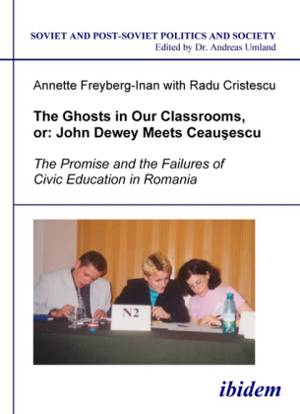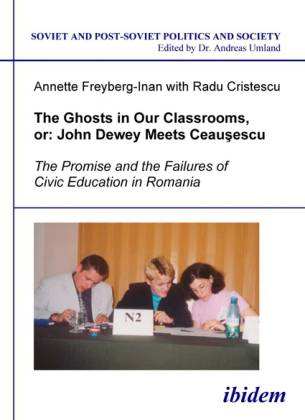
- Afhalen na 1 uur in een winkel met voorraad
- Gratis thuislevering in België vanaf € 30
- Ruim aanbod met 7 miljoen producten
- Afhalen na 1 uur in een winkel met voorraad
- Gratis thuislevering in België vanaf € 30
- Ruim aanbod met 7 miljoen producten
Zoeken
The Ghosts in Our Classrooms, or John Dewey Meets Ceauescu
The Promise and the Failures of Civic Education in Romania
Annette Freyberg-Inan, Radu Cristescu
€ 26,45
+ 52 punten
Omschrijving
How can democracy be learned? And how successful are we at teaching and learning it? This book does three things: First, it explains why civic education is important for the growth and survival of (any type of) democracy. Second, it focuses on a particular country, which is in many ways representative for the general problems of post-communist transition to democracy. It carefully examines the practical reality of civic education in Romania both at the level of general schooling and in higher education. Emphasis lies on the ways in which the ideals of civic education clash with post-communist realities and on the obstacles that continue to exist in this transition country to the democratic empowerment of citizens through education. Scarcity of resources, corruption in many forms, and attitudes of deference to authority, among other problems, perpetuate a situation in which education fails to support democratization and instead reflects the failures of regimes of the past. Third, the book offers concrete recommendations for how civic education in Romania (and elsewhere) can be improved. How can education be organized to successfully support the realization of democratic ideals?This book is based on its main authors direct experience working in the field of civic education in Romania between 1999 and 2005 and draws on her wider expertise in the study of Romanian political economy and the countrys European integration as well as in the fields of political psychology and democratic theory.
Specificaties
Betrokkenen
- Auteur(s):
- Uitgeverij:
Inhoud
- Taal:
- Engels
- Reeks:
Eigenschappen
- Productcode (EAN):
- 9783898214162
- Uitvoering:
- Paperback
- Afmetingen:
- 150 mm x 15 mm
- Gewicht:
- 246 g

Alleen bij Standaard Boekhandel
+ 52 punten op je klantenkaart van Standaard Boekhandel
Beoordelingen
We publiceren alleen reviews die voldoen aan de voorwaarden voor reviews. Bekijk onze voorwaarden voor reviews.











